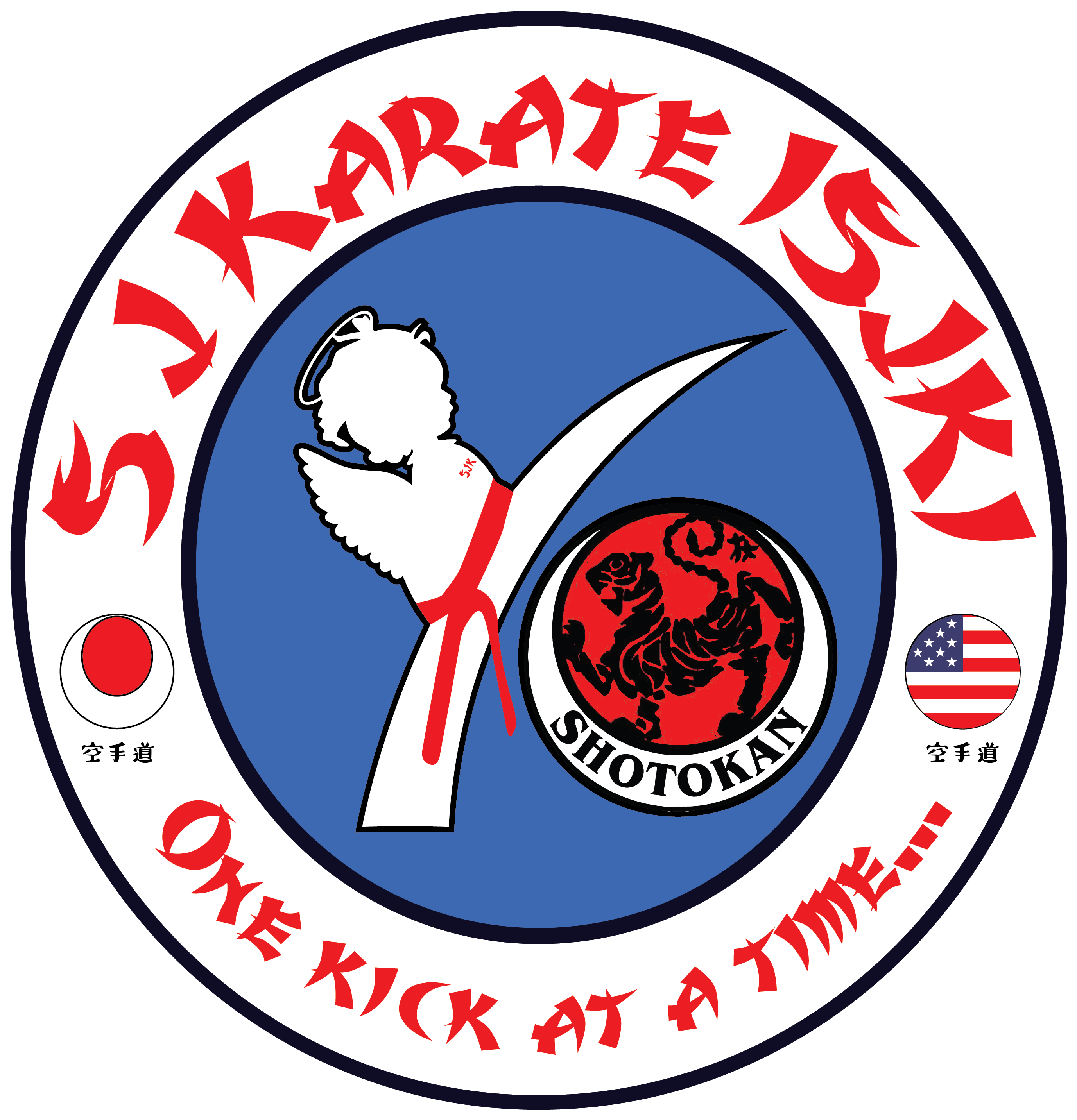COMMON JAPANESE EXPRESSIONS
During class, you may notice that there are several foreign expressions used all the time. This happens because this is something common in the practice of this Shotokan Martial Art. Here we describe some of the most common Japanese terms/words to the students:
COUNTING:
Number Japanese Pronunciation
1 ichi eech
2 ni nee
3 san sahn
4 shi shee
5 go goh
6 roku rohk
7 shichi sheech
8 hachi hahch
9 kyu ukyoo
10 juu joo
GENERAL:
· Kihon (kee-hohn) – basic techniques
· Kata (kah-tah) – pre arranged forms consisting of techniques
· Kumite (koo-mee-teh) – sparring
· Osu (oss) – used to mean almost anything; an affirmative, an agreement, a
greeting, etc.
· Kime (kee-meh) – focus
· Kiai (kee-aee) – spirit yell to focus and strenghten techniques; a “coming together of
decision/spirit/energy”
· Johdan (joh-dahn) – upper level i.e. face, chin, head
· Chuudan (choo-dahn) – mid-level i.e. chest, stomach
· Gedan (geh-dahn) – low-level i.e. groin, knees, shins
· Dojo kun (doh-joh koon) – the five precepts of Shotokan karate (see: Shotokan Karate Principles)
COMMANDS:
· Yoi (yoy) – get ready (into ready stance)
· Hajime (hah-jee-meh) – begin
· Yame (yah-meh) – stop
· Yasume (yah-su-meh) – relax
· Mawatte (mah-wah-teh) – turn around (in stance)
· Rei (ray) – bow
. Kamae (Ka-mai) right fist guarding the plexus and the left fist at shoulder height.
· Shomen ni rei (shoh-men nee ray) – bow to the front (of the dojo)
· Sensei ni rei (sen-say nee ray) – bow to instructor
· Otagai ni rei (oh-tai-gai nee ray) – bow to each other (partner)
. Senpai ni rei (Sen-pai nee ray) – bow to senior student
· Seiza (say-zah) – sit (in Japanese formal sitting position)
· Mokusoh (mahko-soh) – close your eyes and meditate

“SJ Cup” Facebook Page